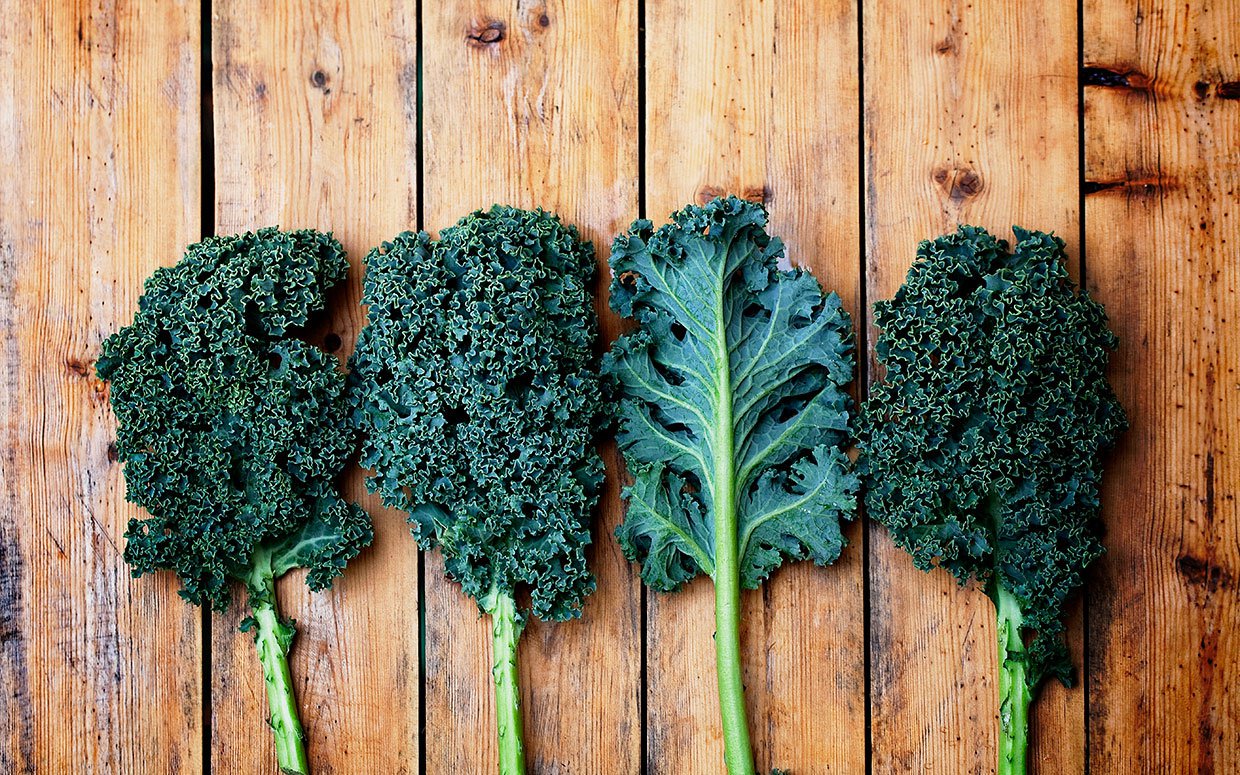Articles, Uncategorized, Yoga Medicine® News
The Truth About Kale

Today I want to dig into the truth about kale. Like any L.A. health nut, I typically jump on the bandwagon of most Food & Nutrition fads that pop up in this city. I’m OBSESSED with organic green juice (there are LITERALLY five juice shops within a two block radius of my house.) I only purchase my vegetables from local Farmer’s Markets that source 100 miles or less outside the city. I have a pretty regimented diet of kale juice for breakfast, followed by another green juice for lunch, and then a sensible dinner that includes some variation of a kale mixed salad.
Never did I consider the dangers my veggie consumption had placed on my already underactive thyroid. At least until I asked Tiffany what to do for my underactive thyroid with nutrition and she mentioned kale. Though I had read reports that kale could be rough on the thyroid, I didn’t know why and refused to believe that this yummy leafy green could do me any harm. Little did I know that all things green are not created equal. My overconsumption of certain raw foods was actually making my body unstable.
Is Kale Safe?
In general, consuming a healthy dose of raw kale on a regular basis is very good for you. Kale is high in vitamins A, C and K, as well as omega-3 fatty acids. The danger of kale, however, is that it falls into the category of a cruciferous vegetable. This classification of vegetable includes kale, broccoli, brussels sprouts, bok choy and arugula to name a few. Vegetables such as these contain goitrogens, which if eaten in high concentrations, can interfere with iodine in the body. Goitrogens suppress the function of thyroid hormones by interfering with the iodine uptake. Since Hypothyroid disease is exacerbated when there is a lack of iodine to produce thyroid hormone, studies have found that kale has the potential to have a negative effect on thyroid function on those with a predisposition toward thyroid issues.
So what’s a kale junkie like myself supposed to do? The good news is, we don’t have to give it up altogether. Tiffany’s advice was simple; cook it, and avoid large quantities of the cruciferous veggies. Cooking these greens is essential for removing goitrogens and will make a huge difference in the way the body digests them. You should also limit your intake to 1-2 cups per day. It can be a valuable addition to your diet, but overconsumption can be dangerous. When it comes to your diet remember that food rotation and moderation is essential for optimal wellness. Eat your greens, but try new recipes, different vegetable groups and invest time in researching which foods work for your body and why. Like the lessons of yoga show us, over-indulgence in anything can be harmful so achieve balance by making well-rounded food choices that support your overall health.
by Emilie Perz.












